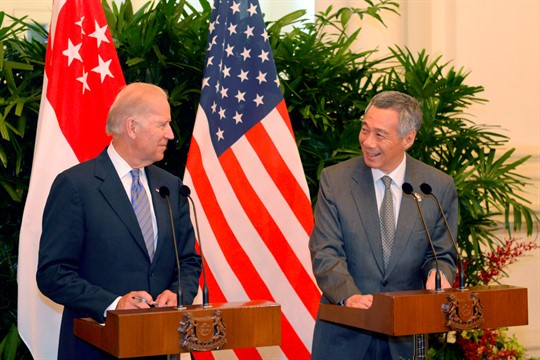
Although President Donald Trump has not conceded the United States presidential election and is mounting multiple dubious legal challenges to the results, President-elect Joe Biden is moving ahead with the transition.
While Biden did not focus on Southeast Asia during his time as vice president from 2009 until 2017, he probably has more extensive foreign policy experience than any incoming president in decades, save perhaps George H. W. Bush. In addition, his policy team includes a deep bench of experts on the Asia-Pacific region.
When it comes to Biden’s approach to Southeast Asia, persistent tensions in the U.S. relationship with China are a major factor. While perhaps less openly confrontational toward China than Trump has been, many of the Democratic Party’s foreign policy experts have become much more distrustful of Beijing in recent years and convinced that the United States’ previous strategies have failed. The incoming Biden administration probably will recognize that, to pursue a tough approach against China, the U.S. cannot afford to alienate critical partners in Southeast Asia, the way the Trump administration has done. Biden is also likely to reinvest in some areas of American power that were neglected under Trump, from diplomacy to a renewed focus on nontraditional security threats like climate change, which will appeal to Southeast Asian states
 Eurasia Press & News
Eurasia Press & News

